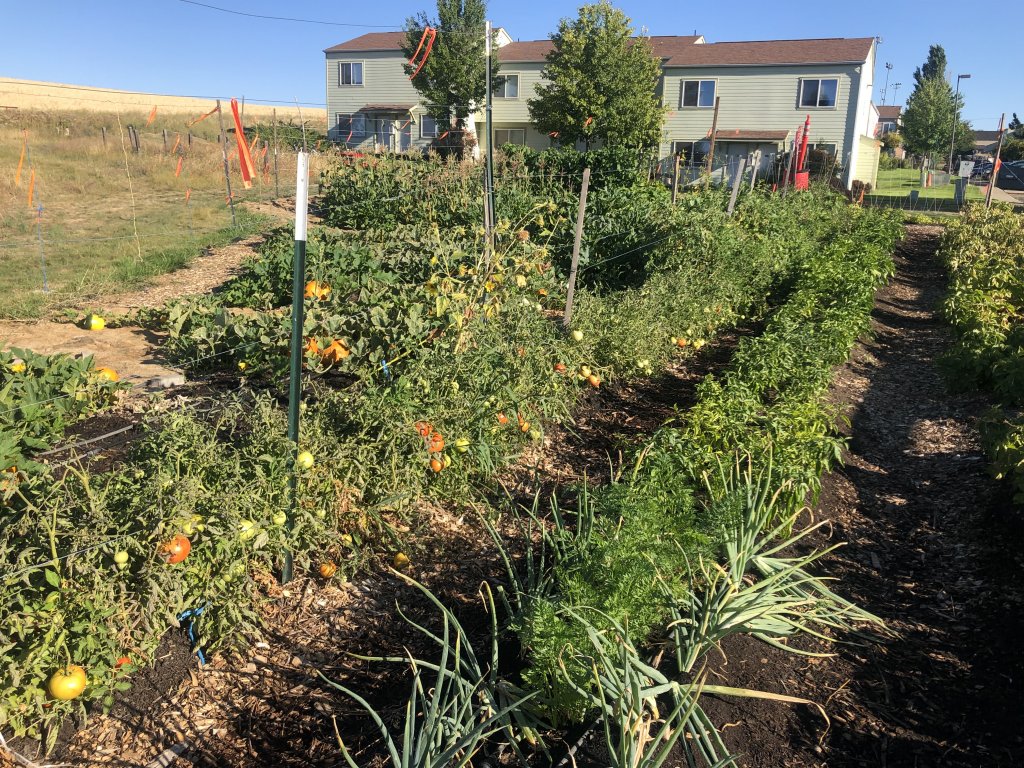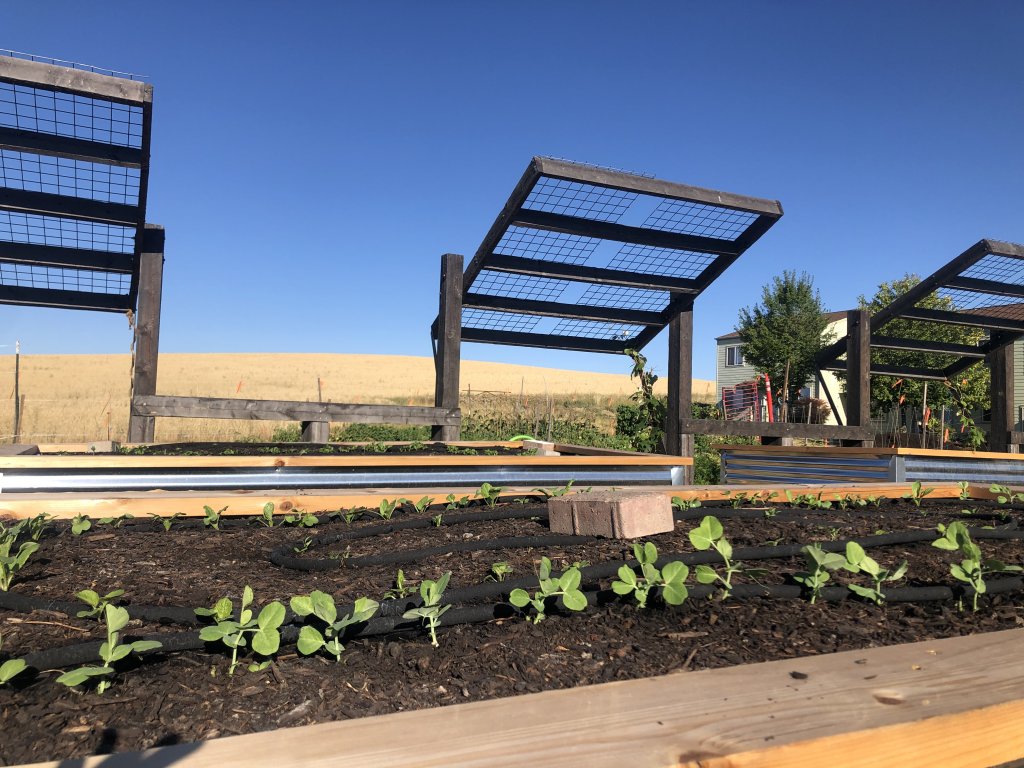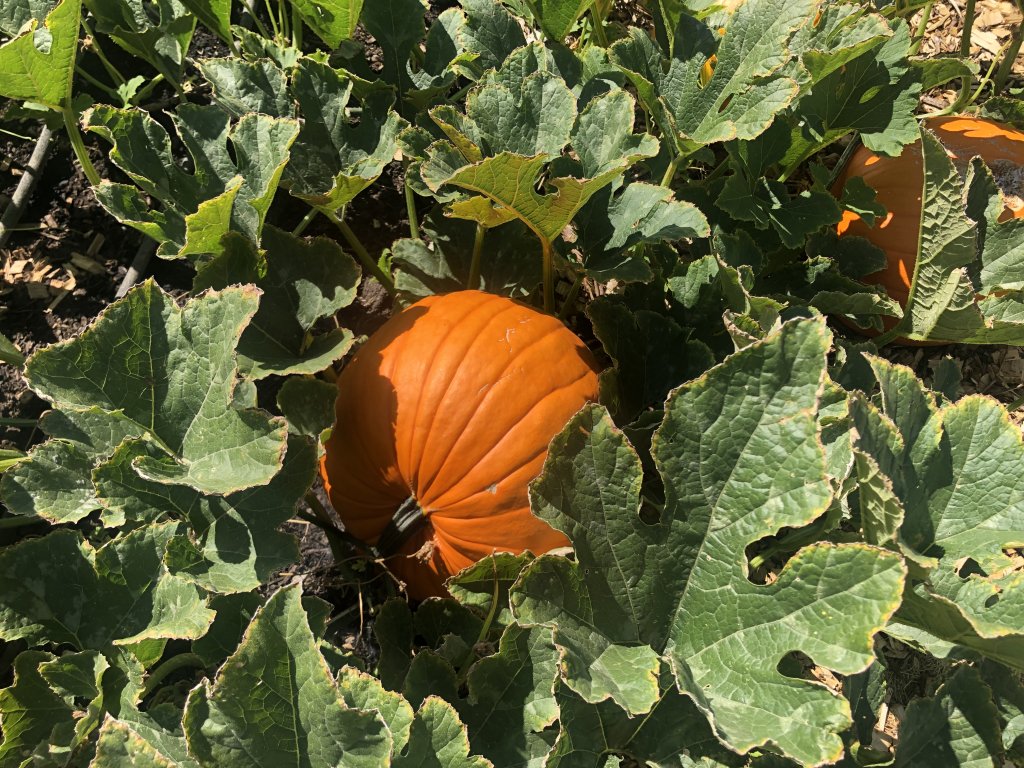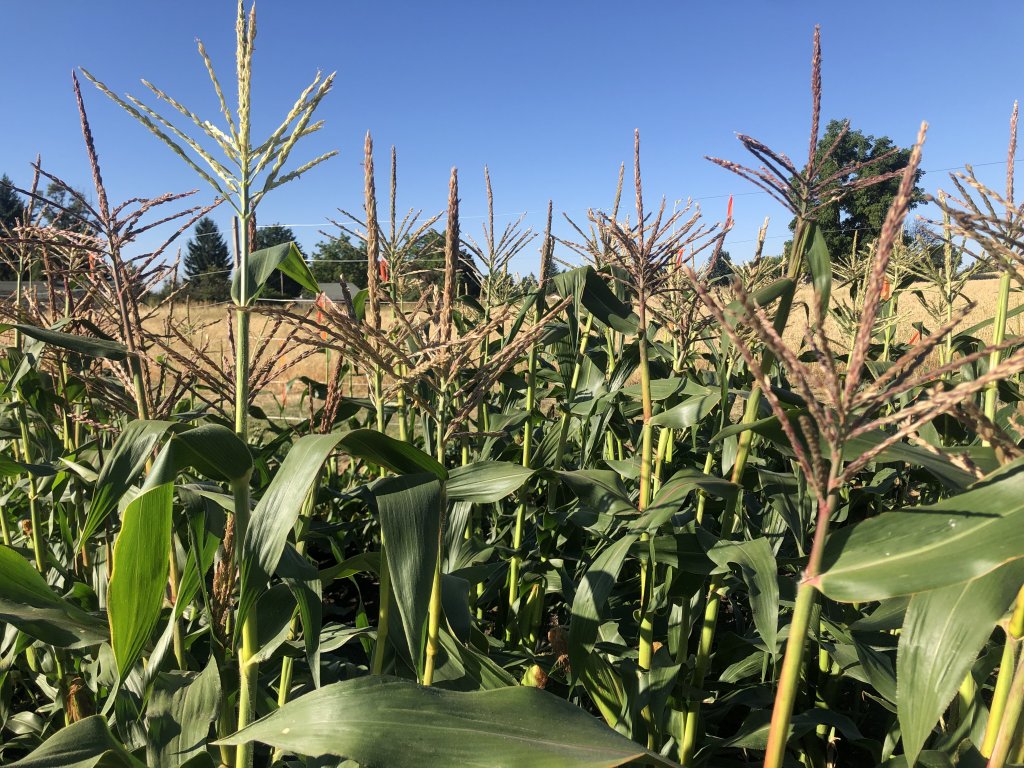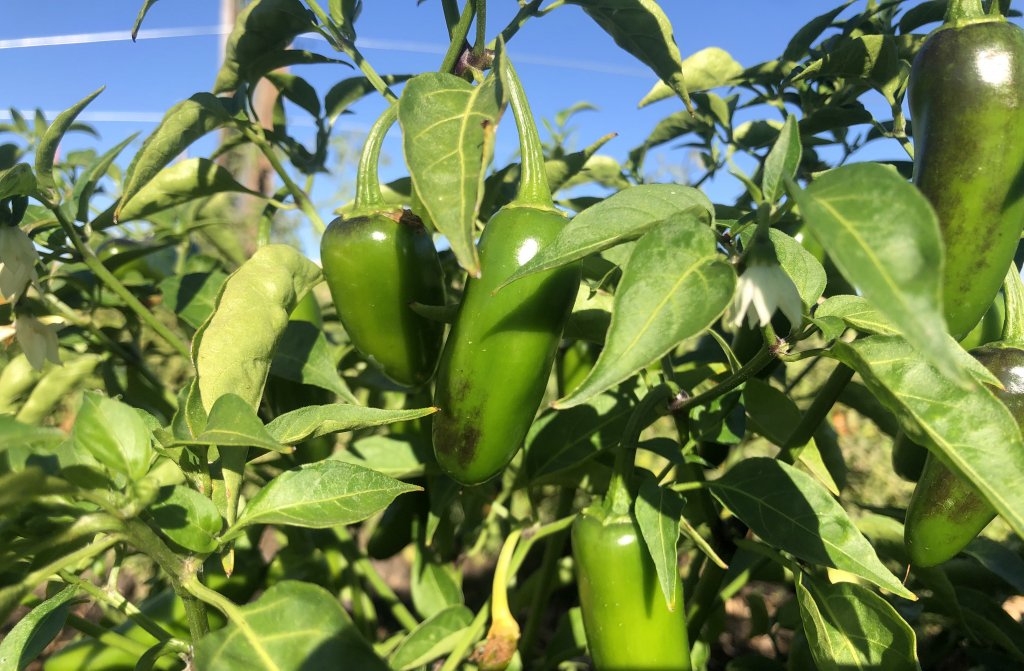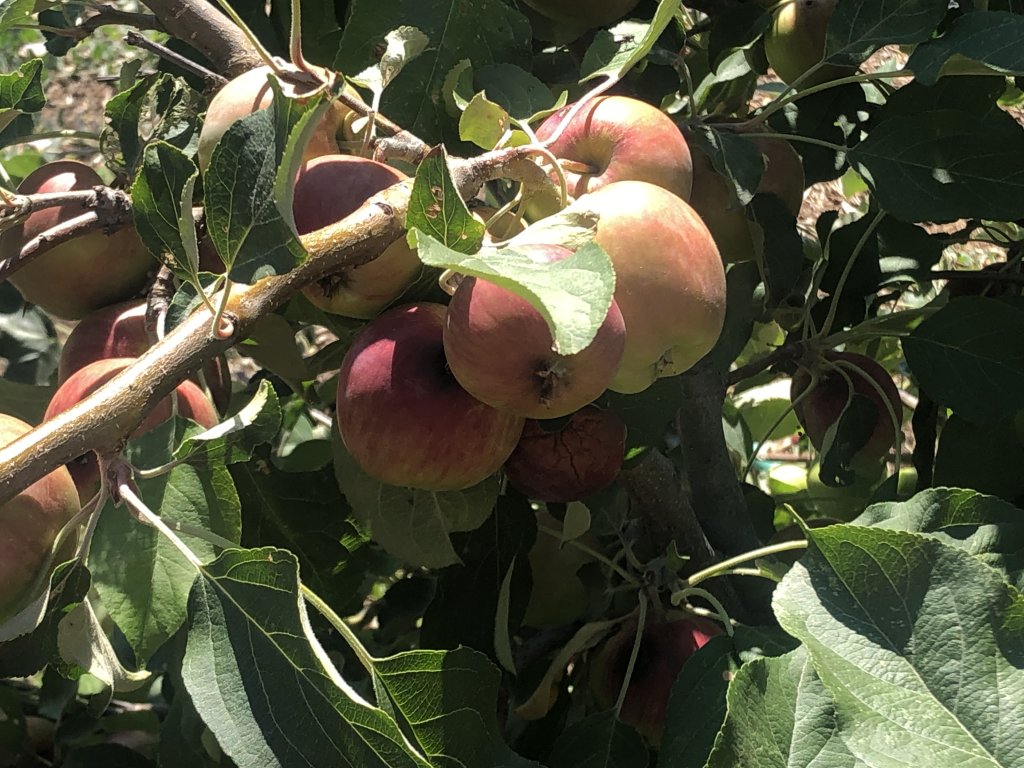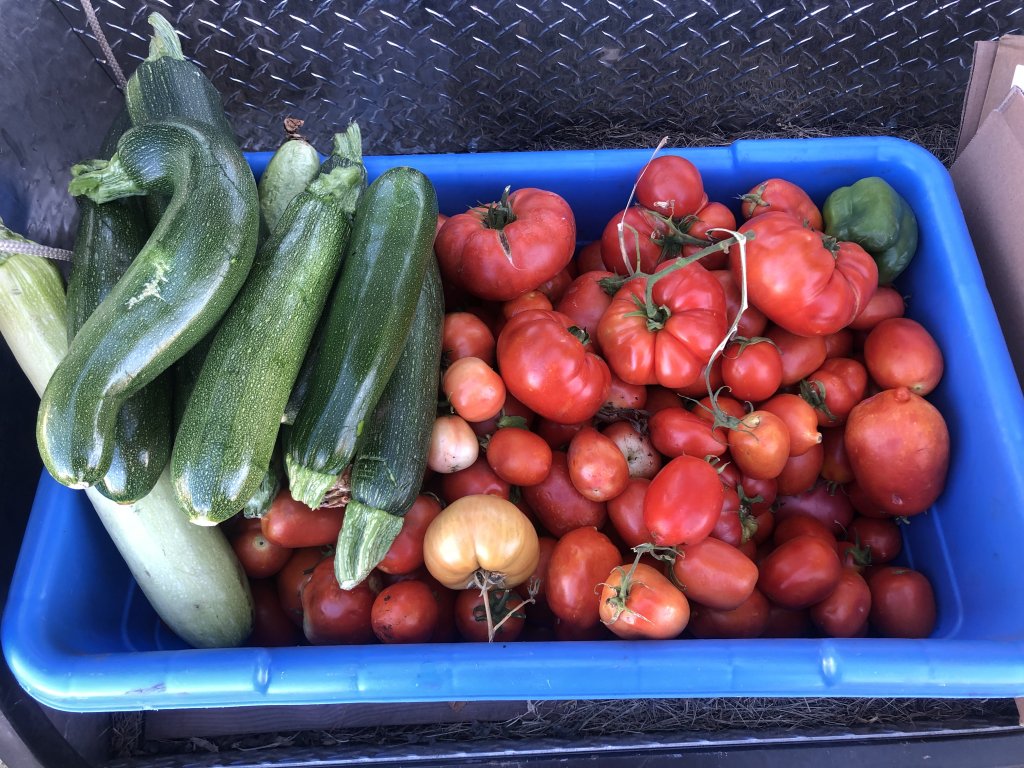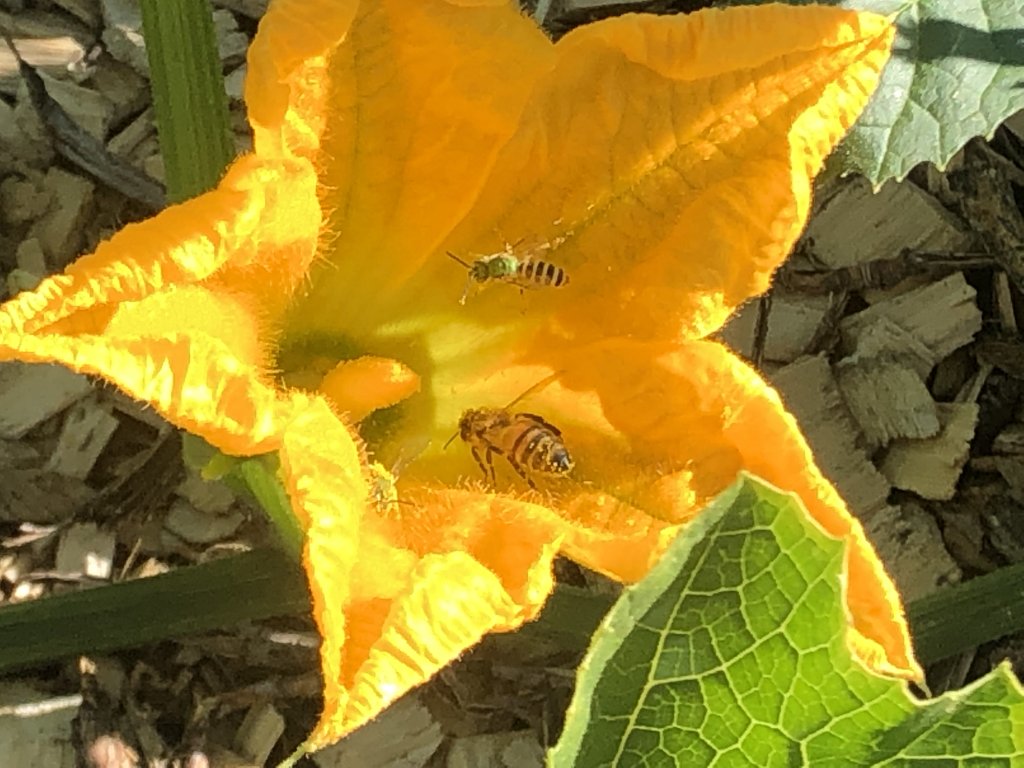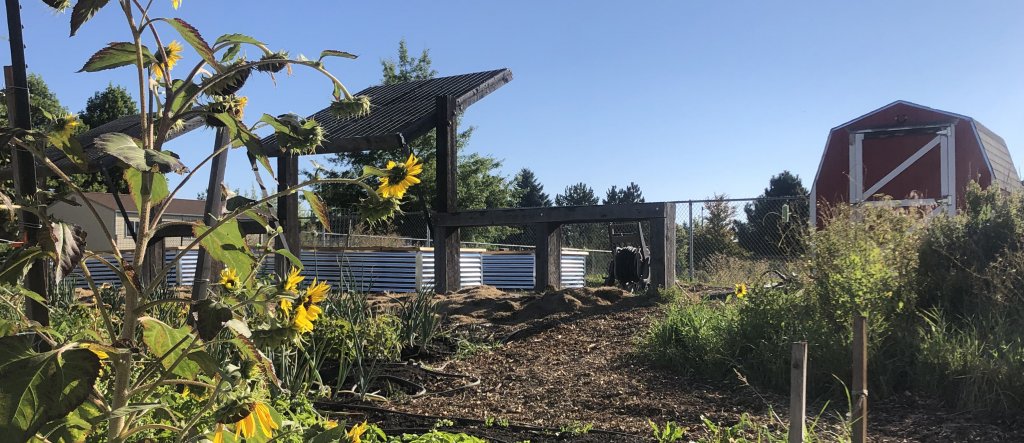
Tucked away behind the Red Barn, well off the beaten path of hurried student footsteps, is a sort-of-secret organic garden, one producing row after row of fresh vegetables and tasty fruit.
If you have never made your way to the far southwest corner of EWU’s Cheney campus, you’ve probably never seen it. EWU Sustainability Coordinator Erik Budsberg thinks that’s a shame. Do yourself a favor, he urges: Pick a nice sunny afternoon and stroll over to the EWU Community Garden and have a look at what he and his volunteers have been up to.
After several years in the current location, this season has been a turning point for the garden, thanks in large part to a redesign that has make it more manageable, Budsberg says.
“What we’ve done here is a more traditional row crop,” Budsberg says as he shows Inside EWU around the space. “The garden used to be a lot more spread out, so we took everything and packed it into a tighter area. Before we would have grass and weeds in between the beds and that was just getting too hard for me to manage.”
The garden is herbicide-free, so the tighter design—along with weed-blocking landscape fabric—is important to help cut down on relentless weeds.
But for Budsberg the changes aren’t only about weed management; they are also about introducing the campus community to do-it-yourself food production. “We wanted to showcase two different ways to make food,” he says.
The first, the crop rows, are currently bursting with many of the vegetables you would expect: corn, beans, cucumber, beets, carrots, onions, potatoes, peppers, turnips, tomatoes, squash, zucchini and pumpkin. There are also raspberries, grapes and an orchard with apple and peach trees.
The second growing method, new to the EWU garden this year, involves raised beds, essentially large boxes framed with wood or cement block. Filled with composted topsoil, raised beds can help gardeners overcome less-than-perfect soil conditions in their native grounds.
“This is something anybody can build in their backyard if they have a limited space or want something easy and contained,” Budsberg says.
Soon EWU’s raised beds will be bursting with lettuce, kale, spinach, chard, broccoli, peas, radishes, turnips and beets. Budsberg says the “salad mix” plants have a shorter growing season and are more frost tolerant.
The goal is to have much of this food ready in the fall when the majority of students return to campus. Some items like zucchini and tomatoes are available now. Volunteers who work in the garden, says Budsberg, can take home produce as it’s available. But the garden is primarily meant to function as a resource for members of the campus community who need it. Every Tuesday morning students, faculty and staff are invited to take home fresh picked veggies.
“We grew this on campus, so this is free for folks and for students,” says Budsberg. “Whether you’re facing food insecurity or you just want fresh food from the garden, it’s all fine to come and get free food.”
Once the fall quarter starts, Budsberg says EWU Dining Services will start a weekly Fresh Market. The Fresh Market will be located in front of the PUB and will operate every Thursday from 10 a.m. to 2 p.m. Each week free food from the garden will be included. It will be available on a first come, first served basis. Follow the Office of EWU Sustainability on Instagram (@ewusustainability) for announcements on what produce will be available each week.
Anything left over will be given to food pantries around campus––click here for a list of locations. Some more perishable items will be given to EWU Dining Services for use in campus meals. Either way all of the fresh, organic produce will be put to good use feeding the university community.
“We’re trying to make something that is really useful for the university,” adds Budsberg. “For students to be able to use but also is not a big draw on resources.”
This summer Budsberg had the help of two student interns and a few volunteers, but extra weed-pulling hands are always welcome. And once more produce becomes ready for harvest, extra picking, pulling and digging hands will come in handy as well. Volunteering is also a good opportunity to learn more about planting and maintaining your own garden. If you’re interested, please contact Erik Budsberg at ebudsberg@ewu.edu.
